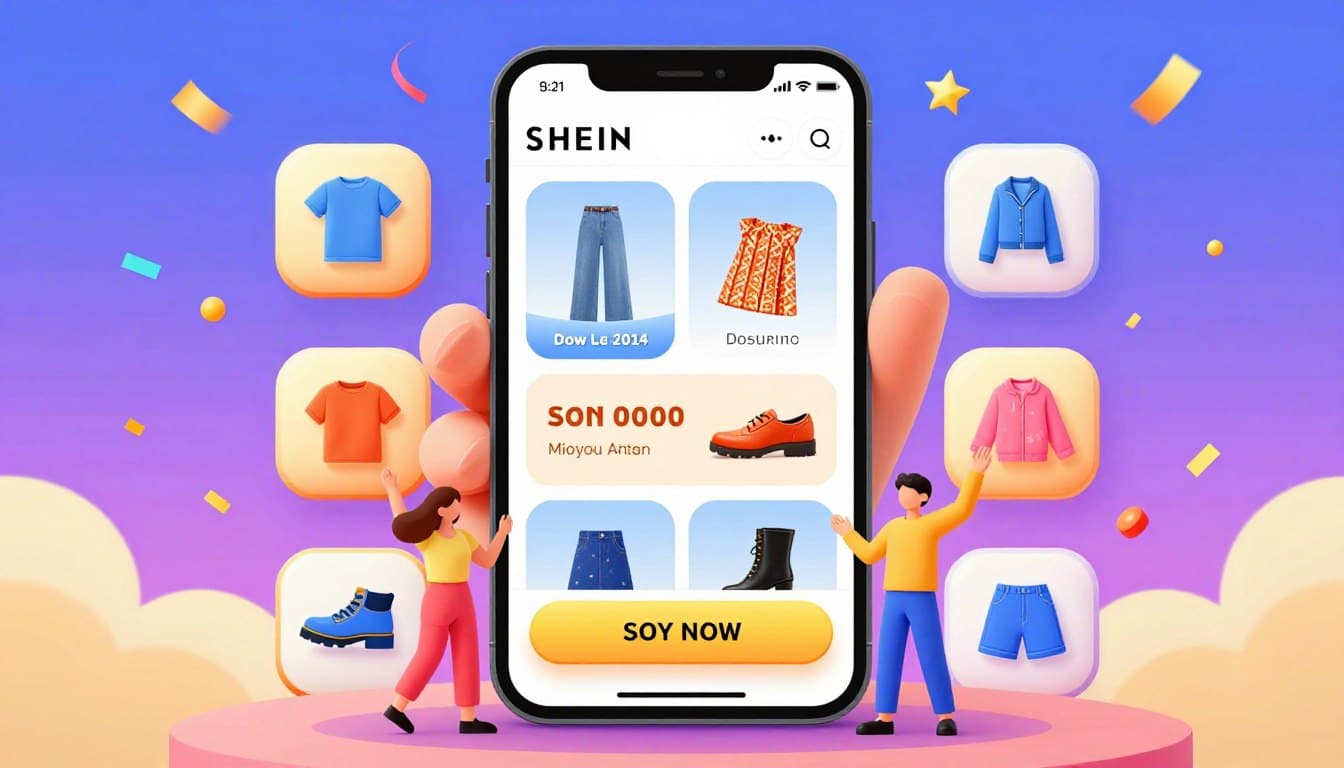Getting ready for a job interview is key to doing well. But, many people make the same mistakes. These errors can really hurt their chances of getting the job they want.
In this article, we’ll show you how to dodge these common errors. We’ll talk about the importance of prepping right for the interview. You’ll learn how to know the interview setup, use body language right, and talk effectively. Always remember, doing well in a job interview starts way before you enter the interview room.
Anúncios

Indeed
The Importance of Job Interview Preparation
Getting ready for a job interview is key if you want to land the job you desire. It is crucial to know the high stakes of job interviews. Doing well in an interview can really boost your career, but being unprepared might hold you back.
Understanding the Stakes
Interviews are about more than just getting a job. They offer a chance for personal and professional growth, plus financial stability. If you’re not ready, you might not make the best impression. Preparing by learning about the company and the job can really set you apart.
Anúncios
How Preparation Sets You Apart
Putting effort into your interview prep shows you’re serious about the job. Being well-prepared boosts your confidence. This makes it easier to show why you’re right for the job. In fact, those who prepare well are often more successful in interviews. This improves their chances of getting an offer.

Common Pitfalls Before the Interview
Getting ready for an interview needs careful planning. Many applicants don’t see the common errors that can hurt their interview success. Missing vital steps like doing deep research on the company means losing chances to connect during the interview.
Neglecting Company Research
Not researching a company can weaken a candidate’s interview performance. It’s key to know the company’s goals, values, latest news, and who they compete with. This insight not only makes your answers better but shows you really care about the job. Look at the company’s website, check their social media, and read up on their recent news to get up to speed.
Ignoring the Job Description
Overlooking the job description is a big mistake. Analyzing it helps you match your skills with what they want. If you skip this, your answers might be too broad and not show why you’re a good fit. Think about how your past work lines up with what they need.
Failing to Prepare Standard Responses
Not prepping for common questions is a slip-up. Without set answers, you might talk too much or not be clear. Get to know the usual questions and practice clear, strong replies. This helps you feel more sure of yourself and express your qualifications better during the interview.
Behavioral Mistakes During the Interview
Interviews look at both what you say and how you act. Many people don’t pay enough attention to the non-verbal cues they give off. This can lead to communication errors. Positive body language can make a great first impression, but negative gestures might cost you the job.
Body Language: The Unspoken Communication
How you carry yourself says a lot during interviews. Some mistakes, like folding your arms, slouching, or avoiding eye contact, can seem like you’re not interested. Instead, try to use open gestures, sit or stand straight, and make eye contact. These actions show you’re focused and can actually improve how you’re seen.
How Speaking Negatively Affects Your Image
Talking negatively in interviews can hurt how you’re viewed. Complaining about past jobs can make you look unprofessional. It’s better to talk about previous roles positively, focusing on what you learned and how you want to grow. This makes you come off in a much better light to interviewers.

Glassdoor
Dressing for Success: Attire Mistakes
Choosing the right clothes for an interview is key. It shows you understand the company’s culture and job role. When gearing up for an interview, think about the job and its industry. Picking out the right outfit can boost your confidence and show you’re serious.
Understanding Professional vs. Casual Wear
Not every workplace has the same dress code. This can be tricky for interviewees. It’s smart to dress more formally, even if the workplace is laid-back. Here are some tips for dressing professionally:
- Opt for tailored suits or blazers that fit well.
- Choose conservative colors like navy, black, or gray.
- Wear clean and polished shoes that match the outfit.
- Avoid overly casual items such as jeans, sneakers, or t-shirts.
The Importance of First Impressions
First impressions matter a lot in interviews. Studies show that employers make quick judgments about candidates. Dressing appropriately can make a better first impression. To make a strong impact, candidates should focus on:
- Grooming and hygiene—neat hair and minimal accessories.
- Comfort in clothing to prevent distractions during discussions.
- Aligning attire with the specific role to demonstrate awareness.
Avoid These Mistakes That Kill Your Chances Job Interview
Good communication is key in job interviews. Instead of seeing it as a tough quiz, treat the talk as a friendly chat. It’s about sharing ideas and getting along with the interviewer. Show you really care about the job and the place you want to work.
Failing to Engage with the Interviewer
If you don’t connect with the interviewer, they might think you don’t care much about the job. Not talking much can make it seem like you’re not into the position. It’s crucial to chat in a way that feels easy and friendly, so they remember you well.
Not Asking Thoughtful Questions
Asking smart questions is a big part of the interview. It shows you’re into the job and have done your homework. Your questions help figure out if the job fits your career goals. If you don’t ask anything, you might look like you’re not interested, which isn’t good for your chances.
Common Blunders After the Interview
After your interview, how you behave is really important. It shapes what your potential boss thinks of you. Following up the right way shows you’re professional and really interested in the job. Saying thank you can really help you stand out in a crowd of applicants.
Why a Thank-You Note Matters
A thank-you note is a key step after your interview. Sending one within 24 hours shows you value the interviewer’s time. This act makes you memorable and lets you share again how much you want the job. Mention something specific from your talk to make your note even stronger.
Appropriate Follow-Up Practices
How you follow up after an interview is very important, but you need to be careful. You must stay polite and professional so you don’t seem too eager. Here’s how to do it right:
- Send your thank-you note quickly.
- Make your messages short and to the point.
- Be clear about your interest in the job.
- Ask any more questions you have when you follow up.
- Don’t overdo it; one or two follow-ups are enough.
Follow these steps to show you’re a great fit for the job and keep things positive with your potential employer.
Handling Distractions and Maintaining Focus
When you’re in a job interview, it’s crucial to stay focused. Distractions can mess up the conversation and lower your chances of getting the job. By using good strategies to handle distractions, you and the interviewer can have a better talk.
Tips on Concentration During the Interview
Staying fully engaged during an interview improves your communication. Here’s how you can boost your focus:
- Practice active listening by fully engaging with the interviewer.
- Maintain eye contact to show you’re interested and paying attention.
- Avoid fidgeting, as it might make you seem nervous and distract from what you’re saying.
Managing Your Mobile Device Effectively
Having your phone with you during an interview can cause unwanted breaks in the talk. It’s key to handle your mobile device well to keep distractions low. Make sure to turn your phone off and put it away before the interview starts. Doing so shows you respect the interviewer’s time and are focused on the moment.
The Role of Soft Skills in Your Interview Success
In today’s job market, soft skills are key for anyone looking to succeed. Emotional intelligence is a big part of these skills. It’s about understanding and controlling your feelings, as well as others’.
Companies want people who are technically skilled and great at dealing with others.
Why Emotional Intelligence Matters
Emotional intelligence helps you connect with interviewers better. It means:
- Knowing how you feel during the interview.
- Grasping how the interviewer feels and reacting well.
- Making a real connection.
Sharing stories where emotional intelligence helped you stand out can give you an edge.
Demonstrating Teamwork and Adaptability
Being able to work in a team is something employers really look for. To shine, share examples where you were a team player. Think about:
- Talking about what you did in a successful group project.
- Telling how you dealt with tough times by being flexible.
- Being open to advice and learning together.
By talking about these experiences, you can show off your soft skills. This will impress the people hiring.
Conclusion
Getting ready for a job interview is key. This article talked about common mistakes to avoid and how important preparation is. You need to know the company and the job role well before your interview.
It’s also crucial to get involved during the interview. Show confidence, ask smart questions, and keep the conversation flowing. Sending a thoughtful thank-you note afterwards can leave a lasting good impression.
In the end, focusing on preparation, staying engaged, making a personal connection, and following up can really boost your chances. Taking steps to dodge these common errors can help you stand out in interviews. This way, you’re more likely to get the job you want.
FAQ
How can candidates best prepare for a job interview?
What are some common mistakes candidates make before the interview?
Why is body language important during an interview?
What types of clothing should candidates wear for interviews?
How important is it to ask questions during an interview?
What should candidates do after the interview?
How can candidates maintain focus during an interview?
Why are soft skills critical in interviews?
Content created with the help of Artificial Intelligence.



